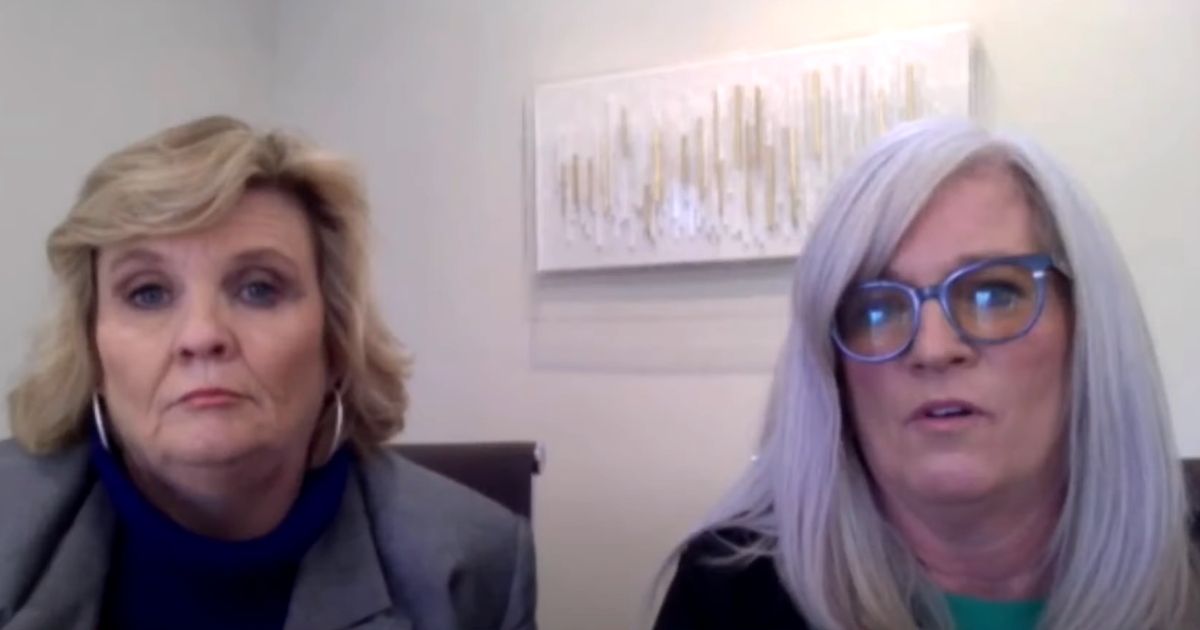For many, taking a DNA test is a way to learn more about their family history and maybe find a few new relatives. For others, a DNA test changes absolutely everything.
Tina Ennis from Oklahoma took a DNA test in 2019, wanting to find an estranged grandfather. Instead, she found that she wasn’t actually related to anyone she thought she was.
Ennis was surprised — but there had been signs along the way, little things she’d noticed growing up that just didn’t seem to add up.
“I looked at a picture one day, and it was my two sisters and my mom and me, and I couldn’t find anything on any of those faces that looked like me,” she told NBC’s “Today” show.
“There was like no resemblance.”
That’s because her mother, Kathryn Jones, wasn’t really her biological mother like all of them thought.
Jones was shocked, too, by the revelation, saying it felt like “somebody took a hatchet” to her heart, leaving her “totally devastated.”
“I mean it was just like, all I could think about was how I was going to tell my mom,” Ennis said. “I just thought she’s not going to be able to handle it. That’s what I thought about.”
[firefly_embed]
[/firefly_embed]
“She was afraid she was going to lose me,” Ennis said. “And she wasn’t going to. I wasn’t going to leave her.”
Apparently, Jones’ biological daughter was Jill Lopez, who’d been born on the same day as Ennis in 1964. The two babies were somehow switched and went home with each other’s families, growing up about two hours apart.
Jones was just as surprised by the news when she found out two years ago and met up with Ennis.
“It’s a hard. … It’s a hard thing to, to get around,” Lopez said.
“It’s a hard thing to know what to do, you know, because there’s no books to buy [to] get you through it,” she said.
Both of Ennis’ biological parents, who raised Lopez, had died, leaving Ennis with more questions than answers.
Lopez and Jones have struck up a friendship, though, and found they have a lot in common. Jones appreciates getting to know her daughter in this way, but she also voiced her loyalty to Ennis.
“I could not lose Tina,” she said. “She’ll just always be my daughter. I’ve loved her from the second they laid her in my arms.”
“It’s a hard thing to know what to do, you know, because there’s no books to buy [to] get you through it,” Lopez said.
The three women have filed a lawsuit against the hospital — but it’s been years since the facility existed. The women say it merged with what is now known as Duncan Regional Hospital, but anyone involved with their care at the time is long gone and there’s no knowing exactly what happened that led to the mix-up.
[firefly_embed]
[/firefly_embed]
A spokeswoman for the hospital released a statement regarding the lawsuit.
“It is the practice of Duncan Regional Hospital to not comment publicly on pending litigation,” said Cyndi Crook, community relations director at Duncan Regional Hospital.
“However, in this particular matter, please note that Duncan Regional Hospital is a not-for-profit corporation that did not come into existence until 1976,” she said.
This article appeared originally on The Western Journal.

























 Continue with Google
Continue with Google